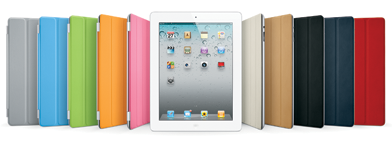 There was a moment during the end-stages of the PC wars where it was so totally clear to everyone that the game was over. Well, everyone but Microsoft. Despite having won in a blowout fashion, Microsoft showed no signs of slowing down. They were still stepping fully on the gas pedal.
There was a moment during the end-stages of the PC wars where it was so totally clear to everyone that the game was over. Well, everyone but Microsoft. Despite having won in a blowout fashion, Microsoft showed no signs of slowing down. They were still stepping fully on the gas pedal.
At the time, the sheer aggression of it all prompted a commentator to note that Microsoft was crushing the competition 99-0 (in football terms), yet they were still running up the score.
I bring up this point up because it helps frame my takeaway from Wednesday’s iPad 2 announcement.
For while it may be tempting to see the battle between iOS-powered iPads and Android-powered tablets as likely to be close, the truth is that Apple is blowing out the competition. The competition has no offense, no defense, and in the words of Steve Jobs, is getting “flummoxed.”
And they should be. Why? Because comparisons to Android’s strong competitive effort in the smartphone realm hide the fact that in the media player realm — arguably the closer analog to the iPad’s domain — Android is a total non-entity. This speaks to the simple fact that when you remove the artificial “pull” of mobile carriers from the media/tablet realm, Android devices are hosed.
Strong words to be sure, but consider this: we have already established ad infinitum that a tablet is a “tweener” device — not quite a PC, but more than a smart phone. As such, it’s a discretionary buy.
Now putting aside the fact that Apple just sold 15M iPads in only 9 months of 2010, yielding $9.5B in revenue, it does not follow that other entrants into this segment should expect even remotely comparable success anytime soon. Here’s why:
Dumb channels + undifferentiated + more expensive = fail

Discretionary buys are heavily reliant on smart sales channels, where features, benefits and outcomes can be articulated. These channels ensure that early adopters achieve success in their nascent usage, which means they’ll continue to use the product and spread the word.
As Jobs beat into the ground during the iPad 2 keynote, Apple has this channel advantage you might have heard of: It’s called Apple retail, and they know how to sell-sell-sell. The Android Army by contrast has … has … (crickets chirping).
Playing effectively in such a domain requires competitive pricing (unless you really think someone is going to outflank Apple on the high-end), and both hardware and software differentiation.
The early data on competitive pricing is not encouraging for the would-be tablet competitors, where Apple’s $499 entry point on iPad has the competition flummoxed to the point of trying to only be a couple hundred dollars more than iPad.
Meanwhile, is there anyone that approaches Apple on hardware design? On a mass-market level, the answer is “no,” but I will grant you that here the competition is in the ballpark, and certainly can approximate Apple’s efforts and innovations.
But, when it gets to software differentiation I would submit that the very reason device OEMs are turning to Android is that they get discombobulated trying to understand software platforms, let alone execute on them.
Having cut my teeth professionally in the most hardware-centric of segments — network infrastructure and embedded systems — I can tell you that hardware people not only don’t grok software, they see it as something to be put in a corner so as not to conflict with hardware performance.
This is an anathema to the Apple vision of an “apps lifestyle.” This is one reason that despite the iPhone basically being an iPod with a phone wrapper, it still lacks a comparable iPod-iTunes competitor (see “Android’s Missing Leg“).
Remember the dig by naysayers that the iPad was merely an oversized iPod Touch? I am guessing that having seen the first few Android-powered tablets beginning to enter the stage (Galaxy, Xoom) that the Android Army really wishes they could be as compelling as an oversized iPod Touch.
This, of course, should be no surprise since the apps lifestyle is a somewhat derided concept in the Android universe. As such, most non-Google Android apps are the sloppy second creations of their superior iOS siblings.
So why is Apple running up the score?
Here’s where the game starts to get ugly. When you are selling underpowered, overpriced products through uneducated channels, it’s much harder to get the proverbial dogs to eat the dog food than in the carrier-friendly model.
Had Apple done nothing new on the tablet front, then perhaps in a year the Android forces would have found the trinity of hardware design, software capabilities, and developer ecosystem to activate a forward march.
But during the PC wars Apple was on the other side of Microsoft running up the score, and Apple knows the bitter taste of being under-resourced, outmanned, and outflanked. Apple won’t stop running from its PC-whipped past into a Post-PC-dominant future until the competition waves the white flag.
Hence, when I look at the announcement of a seriously compelling iPad 2, I see this as Apple saying to the competition: “Your victory is not an option. Either retreat, or get beat.”
Related:
